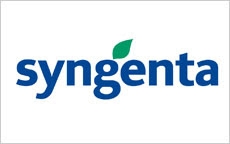The hearing, which started this morning at the European Patent Office, will establish the validity of patents on breeding vegetables. A unit of Basel, Switzerland-based Syngenta and Unilever, based in London and Rotterdam, challenged the patents as invalid because they cover a biological rather than technical process.
Farmers and representatives from Greenpeace were among those protesting against the patents outside the Munich, Germany, office today. Patents that cover vegetables should never have been granted and must be stopped, Greenpeace said in a statement today.
Failure to do so would lead to "rising prices for farmers and consumers" because fewer companies would control food production, Christoph Then, a patent consultant for Greenpeace, said in the statement.
"The cases today will decide to what extent the patents can be maintained," Rainer Osterwalder, a spokesman for the patent office said by telephone. "The patents will remain valid until there's a final decision, which we expect by the end of this year."
Plant Bioscience Patent
In 2003, Syngenta filed its challenge against the patent U.K.-based Plant Bioscience Ltd. got a year earlier on a breeding process for broccoli plants. Unilever in 2004 opposed a patent granted to the Israeli Ministry of Agriculture for a method for breeding tomatoes, according to the patent office.
While Syngenta backs patent protection for new breeding methods that respect the law, the company doesn't support patents on methods that already exist.
"We originally filed an opposition to the 'broccoli patent' because we did not believe the requirements of patentability were met," Syngenta said in an e-mailed statement. "Our opposition was in relation to this very specific patent application."
Unilever spokesman Flip Doetsch said in an e-mail he had no comment at this stage.
A European patent is the easiest way for companies at the moment to get patent protection across several countries at once. The European Patent Office isn't part of the European Union.
The European Commission, the executive agency for the 27- nation region, earlier this month presented plans to create patents to cover the whole EU. Similar plans for EU-wide patents have failed in the past over language issues.



No comments:
Post a Comment